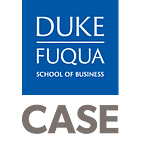Fundación Capital: Getting Ready for Scale
As part of this Scaling Snapshot, see also Fundación Capital’s Organizational Overview, Scaling Strategies, and Scaling Pearls of Wisdom. You can find the full scaling snapshot PDF here.
Yves Moury founded Fundación Capital in 2009, after his work throughout Latin America exposed him to the impact that financially empowered women could have in their communities. He saw the opportunity to extend this impact throughout the continent, leveraging existing policies (e.g., cash transfers) and adding value by promoting savings behavior. FC quickly realized its unique position in fostering communications between financial institutions, end-users, and governments, thereby ensuring that any solutions met the needs of all stakeholders. FC began testing and embedding strategies in Peru, Colombia and Bolivia, and then expanded throughout the region. Over the next few years, it gradually expanded its geographic footprint to Brazil, Chile, the Dominican Republic, Ecuador, El Salvador, Guatemala, and Paraguay. By 2013, its work spanned 10 countries.
Key success factors in positioning Fundación Capital for scale included:
- Financial Viability: Finding an aligned, flexible funder. From the start, FC found an aligned funder in the Ford Foundation. Frank DeGiovanni, a member of the Ford Foundation team, had spent many years working on economic inclusion and had a vision of innovation and scale across a number of countries. He, along with the Foundation’s Latin America team, saw potential in FC’s model of engaging the public and private sector together in this work. Ultimately, the Ford Foundation provided the critical, patient capital for FC to build relationships and create a portfolio of successful solutions.
- Ensuring Scalability: Envisioning scale from the start. “Fundación Capital was born with the exclusive objective of getting to scale,” says Moury. That meant partnering with governments from the start — co-creating solutions that would align with country systems and could ultimately be adopted for long-term sustainability. It also meant leveraging technology and designing digital training solutions, even for the most marginalized, in order to build capabilities more cost-effectively. Finally, it meant that every pilot project took into account realities of scaled implementation, such as identifying a payer, achieving economies of scale, measuring results, and co-creating with partners.
- Clarifying Core Assets: Establishing the unit of scale. Given the different systems and needs of each country that require a customized methodology, FC thinks about its scaling unit as an innovative approach that can be replicated across geographies. The approach includes engaging multiple stakeholders (government, private sector, and end-users), identifying incentives for all parties, and engaging in an informed co-design process that builds on a portfolio of successful solutions that can be tailored for different contexts. In order to replicate this approach, FC also sees its staff as a critical core asset — individuals who can manage relationships and technical knowledge on many different levels.
Fundación Capital spent its first several years pursuing these strategies, ultimately preparing it to begin to scale significantly around the year 2014. Click here to read about the ways in which FC has scaled its impact, including the implications of these strategies for the organization.
Published March 2019. Find the full Scaling Snapshot PDF at https://rebrand.ly/fundacioncapitalscaling.
Authored by Erin Worsham, Kimberly Langsam, and Ellen Martin.
